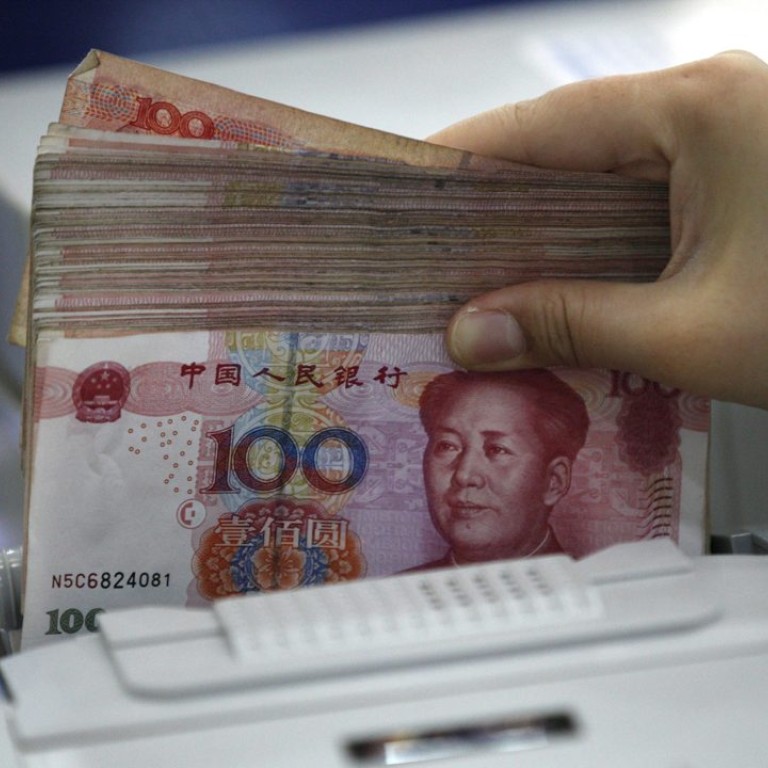
New | Chinese currency’s inclusion in IMF basket a ‘historic opportunity’ for Hong Kong
Hong Kong can play a pivotal role in facilitating the use of the yuan as a currency for international settlement, leveraging its unique position to become a leading offshore trading hub, according to the city’s de facto central bank chief.
“The International Monetary Fund’s decision to include the yuan in its list of reserve currencies confirms that yuan is a freely usable currency and also enhances the representativeness of the Special Drawing Rights (SDR). It marks a key milestone in yuan internationalisation,” said Hong Kong Monetary Authority chief executive Norman Chan Tak-lam.
Since 2003, Hong Kong has played a vital role in Beijing’s yuan reforms. The city’s banks were the first to be allowed to conduct individual yuan bank deposit and remittance services. In 2009, Hong Kong was also the first city worldwide to provide yuan trade settlement services, marking the beginning of the internationalisation of yuan.
Chan said the inclusion in the SDR currency reserve basket would benefit Hong Kong as a hub for offshore yuan trading.
READ MORE: International Monetary Fund approves reserve currency status for China’s yuan
“Being the largest offshore yuan business centre with close economic and trade ties with mainland China, Hong Kong should seize this historic opportunity and continue to strengthen our financial market infrastructure, as well as upgrade our talent pool and products,” Chan said.
“Hong Kong can continue to play a pivotal role of bridgehead and financial hub in the process of the mainland’s further opening up of its financial markets and RMB internationalisation,” he said.
The HKMA will continue its efforts to reinforce Hong Kong’s role as an offshore RMB centre by engaging with mainland authorities on wider channels for cross-border RMB fund flow and enhance the RMB business platform, he said, adding the HKMA will also promote Hong Kong’s offshore RMB business and strengthen business links with other markets.
The SDR is an international reserve asset based on a weighted average of the value of a basket of currencies that until now included the US dollar, euro, pound sterling and Japanese yen.
Jasper Lo Cho-yan, a director at Tung Shing Futures, said the IMF’s decision would be an opportunity for Hong Kong to regain its leadership position as a forex trading centre.
“Before the handover, Hong Kong was the leading forex trading centre in Asia. But the handover has led many foreign traders to shift to Singapore due to the fear of political uncertainty,” Lo said.
“Although some central banks may opt to trade in mainland China, many would prefer trading in Hong Kong for its sound financial market and no capital controls. This would be a golden opportunity for Hong Kong to regain its title as the top forex market in Asia,” Lo said.
Christopher Cheung Wah-fung, legislator for financial services sector, said the inclusion of yuan in the SDR basket would prompt China to speed up its capital market reforms, such as the launching the Shenzhen-Hong Kong stock connect.
READ MORE: Central bankers unlikely to beat a path to yuan’s door after IMF decision
“This will strengthen Hong Kong as a hub for international and mainland investors to trade mainland stocks,” Cheung said.
Peter Wong Tung-shun, the Asia-Pacific chief executive of HSBC Holdings, said the IMF’s move would encourage more sovereign investors and companies to use yuan to settle trade and invest.
“As the largest offshore RMB centre, Hong Kong has the expertise and capabilities to continue to play a pivotal role in China’s integration into the global financial system,” Wong said.
There are challenges too, however. HKMA data show yuan deposits in Hong Kong dropped to 854.3 billion yuan as of the end of October, down 4.6 per cent that month after a sharp fall of 8.5 per cent in September. The fall came after People’s Bank of China on August 11 devaluated the yuan by 2 per cent, which led many depositors to shift to other currencies. The yuan trade was at a three-month low on Tuesday.
“Increasing yuan internationalisation and liberalisation could lead to increased currency volatility,” said credit rating agency Fitch in a report on Tuesday.

